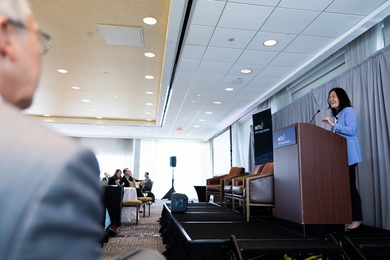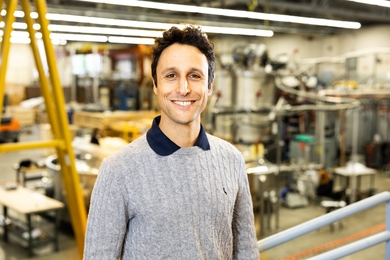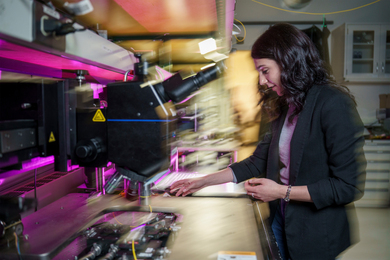The Center for Environmental Health Sciences (CEHS) has won a grant from the Department of Energy for a scientific instrument that will aid CEHS research toward discovering the causes of mutations in humans.
The grant, through the DOE's University Instrumentation Program, will provide $371,857 to purchase a tandem quadrupole mass spectrometer with an electrospray ion source.
To qualify for consideration under this program, the instrumentation must relate to and enhance ongoing research funded by DOE. Professor William G. Thilly's DOE project, Mutagenesis of human cells in vivo and in vitro, focuses on the discovery of the causes of mutations in humans. This involves characterization of mutational spectra in human tissues and comparison to the mutational spectra of environmental chemicals measured in these tissues. Dr. Thilly holds appointments in the Department of Civil and Environmental Engineering (CEE) and Whitaker College.
The mass spectrometer will be used in this context to identify modified nucleic acid fragments present in complex mixtures such as urine, plasma, tissue extracts or cell culture media. The availability of the instrument will accelerate the development of methods for analysis of DNA damage or alteration. These methods will be used to study human populations with elevated cancer rates or elevated exposure to environmental chemicals. The objectives are both to understand the mechanisms of environmental mutagenesis and measure individual exposure.
The instrument will be used by eight faculty members from the Division of Toxicology in Whitaker College, the Department of Chemistry, and CEE. There are at least 16 graduate students whose thesis research will be enhanced by access to the instrument. It is expected that other researchers will be attracted to this area as a result of the capability of this core facility.
The instrument will be housed in the laboratory of Professor Steven R. Tannenbaum, associate director of CEHS. The Tannenbaum group is responsible for advances in human protein adduct measurements that have earned MIT a large measure of international acclaim. The instrument laboratory will be supervised by Dr. John S. Wishnok of CEHS and the Division of Toxicology, who with Professor Thilly, wrote the successful proposal.
This grant was one of 18 funded from a total of 166 applications from US universities and colleges requesting support for a wide variety of scientific instruments.
A version of this article appeared in MIT Tech Talk on March 22, 1995.





